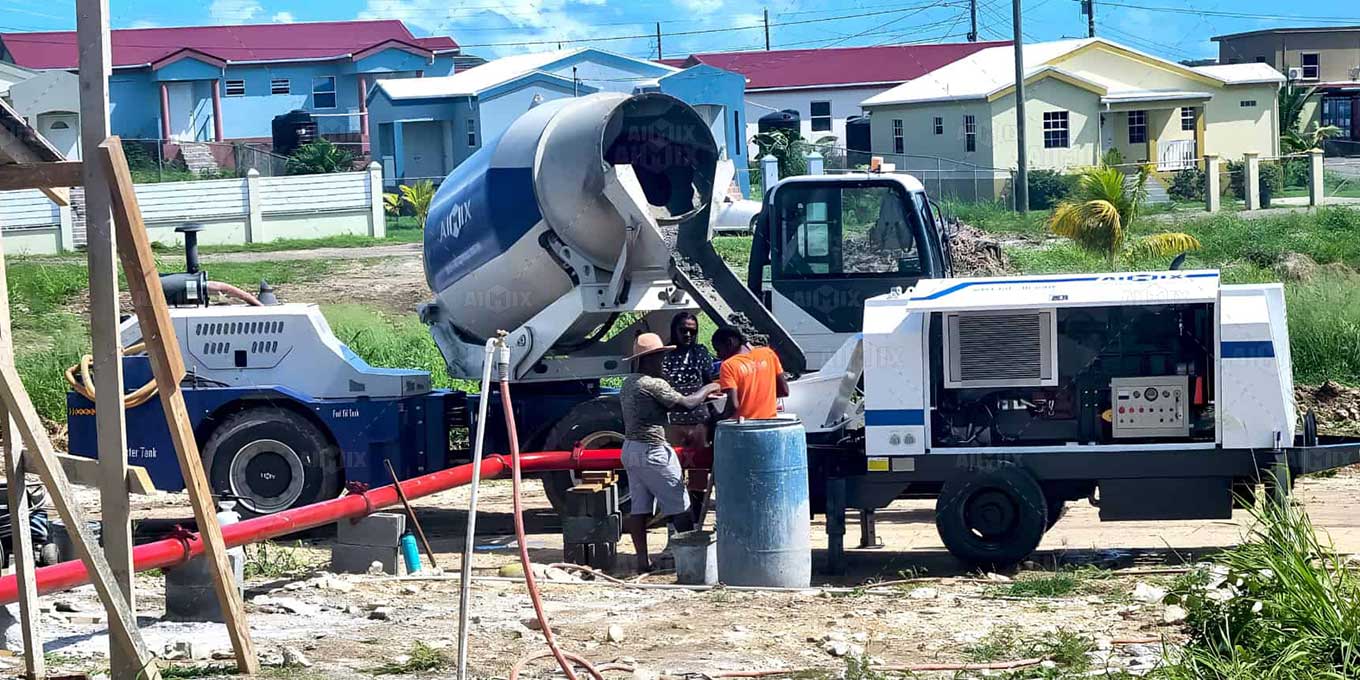Selecting the ideal self-loading concrete mixer for Kenyan construction projects requires careful consideration of both performance needs and budget constraints. The local market presents unique challenges, from rugged terrain and variable material quality to fluctuating fuel prices and tight project timelines. Making informed decisions about key features ensures operational efficiency without unnecessary expenditure on capabilities that won't be utilized. The balance between essential functionality and cost-effectiveness becomes particularly crucial in Kenya's competitive construction environment.
Understanding which features deliver genuine value for Kenyan conditions prevents overspending while maintaining productivity. Four critical aspects demand particular attention: drivetrain capabilities, weighing accuracy, mixing performance, and power plant efficiency. Each component must be evaluated not in isolation, but as part of an integrated system that matches specific project requirements and local operating conditions. This approach transforms the specification process from a simple self loading mixer concrete equipment purchase into a strategic investment decision.

Not all Kenyan construction sites require four-wheel drive capability. Projects in urban areas with established access roads might find conventional 4x2 configurations perfectly adequate, while rural installations with challenging topography will benefit from the enhanced traction of 4x4 systems. The decision should be based on actual site assessments rather than hypothetical scenarios.
The premium for 4x4 capability typically ranges between 15-25% in the Kenyan market. This investment should be justified by project accessibility requirements and potential revenue losses from weather-related downtime. Contractors working in regions with prolonged rainy seasons may find the additional cost quickly pays for itself through uninterrupted operations.
High-precision weighing systems become economically justifiable for projects requiring structural-grade concrete with strict compliance standards. For general construction work, moderately accurate systems with regular calibration capabilities often provide sufficient precision without the premium associated with laboratory-grade equipment.
Kenya's variable climate conditions necessitate weighing systems with environmental compensation features. Look for systems on the self loading concrete mixer in Kenya that automatically adjust for temperature changes and humidity fluctuations, which are particularly valuable in regions experiencing significant daily temperature variations.

Variable rotation speed control delivers particular value when working with diverse mix designs. This feature allows operators to adjust mixing intensity for different concrete formulations, from standard mixes to specialized compositions containing local additives or recycled materials.
The drum drive system should be specified with attention to local service capabilities. Complex hydraulic systems might offer superior performance but could prove challenging to maintain in remote areas where technical expertise is limited. Mechanical drive systems often provide adequate performance with simpler maintenance requirements.
Engine specification should focus on optimal power delivery rather than maximum horsepower. Kenyan altitude variations affect engine performance, particularly in highland regions where atmospheric pressure reduction diminishes engine output. Turbocharged engines maintain better performance consistency across altitude variations.
Evaluate engine options based on total operating costs rather than purchase price alone. The significant fuel price variations in the Kenyan market make fuel efficiency a crucial consideration. Modern electronic fuel injection systems typically deliver better fuel economy than traditional mechanical injection systems, offsetting their higher initial cost through reduced operating expenses.
Specifying the ideal self-loading mini concrete mixer machine for Kenyan operations requires balancing performance requirements with fiscal responsibility. The most sophisticated features provide little value if they cannot be properly maintained or utilized within local conditions. By focusing on essential capabilities that address specific Kenyan operational challenges, contractors can acquire equipment that enhances productivity without imposing unnecessary financial burdens. The right specification decisions transform equipment purchases into competitive advantages that drive business growth in Kenya's dynamic construction market.